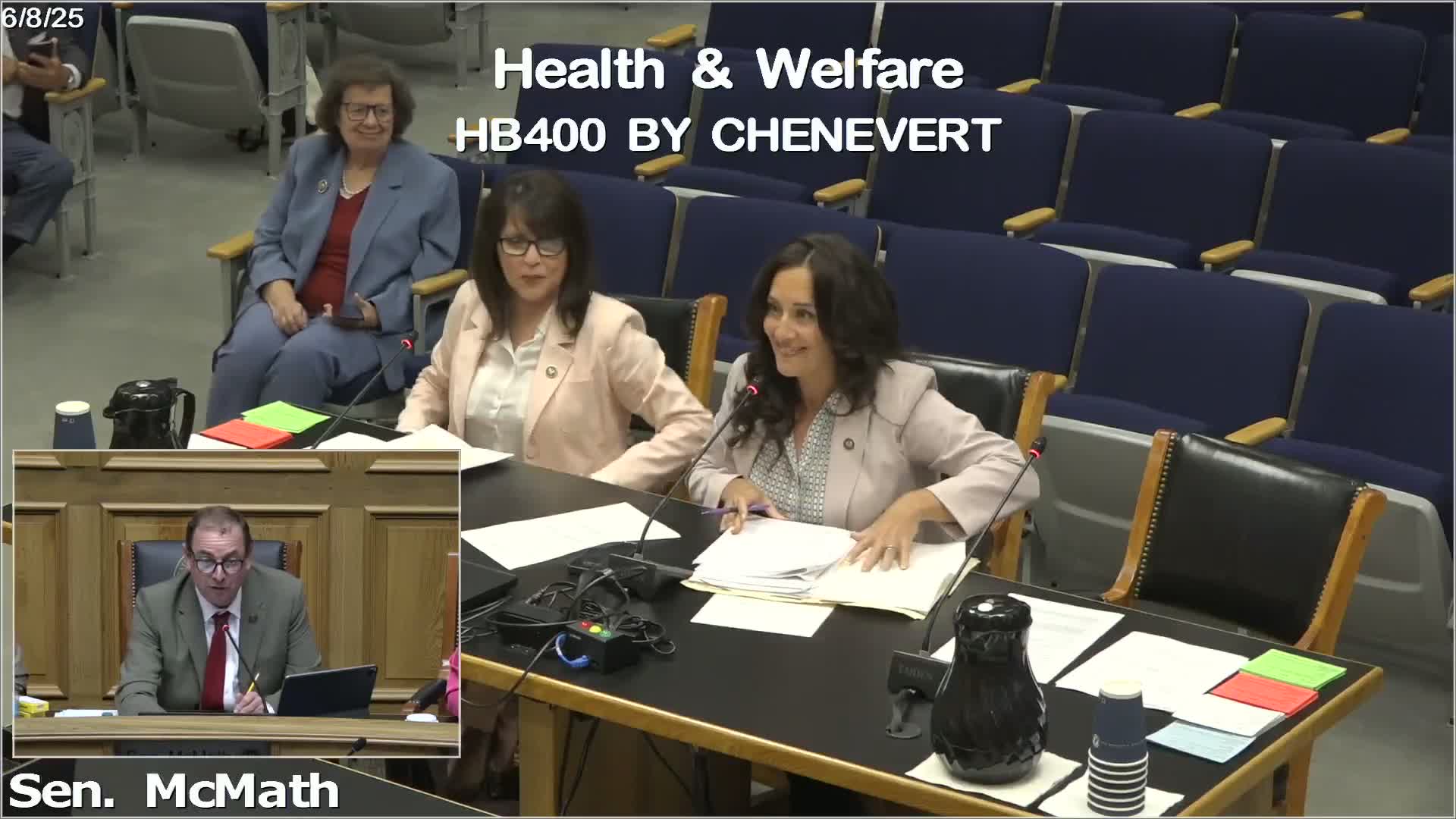Article not found
This article is no longer available. But don't worry—we've gathered other articles that discuss the same topic.
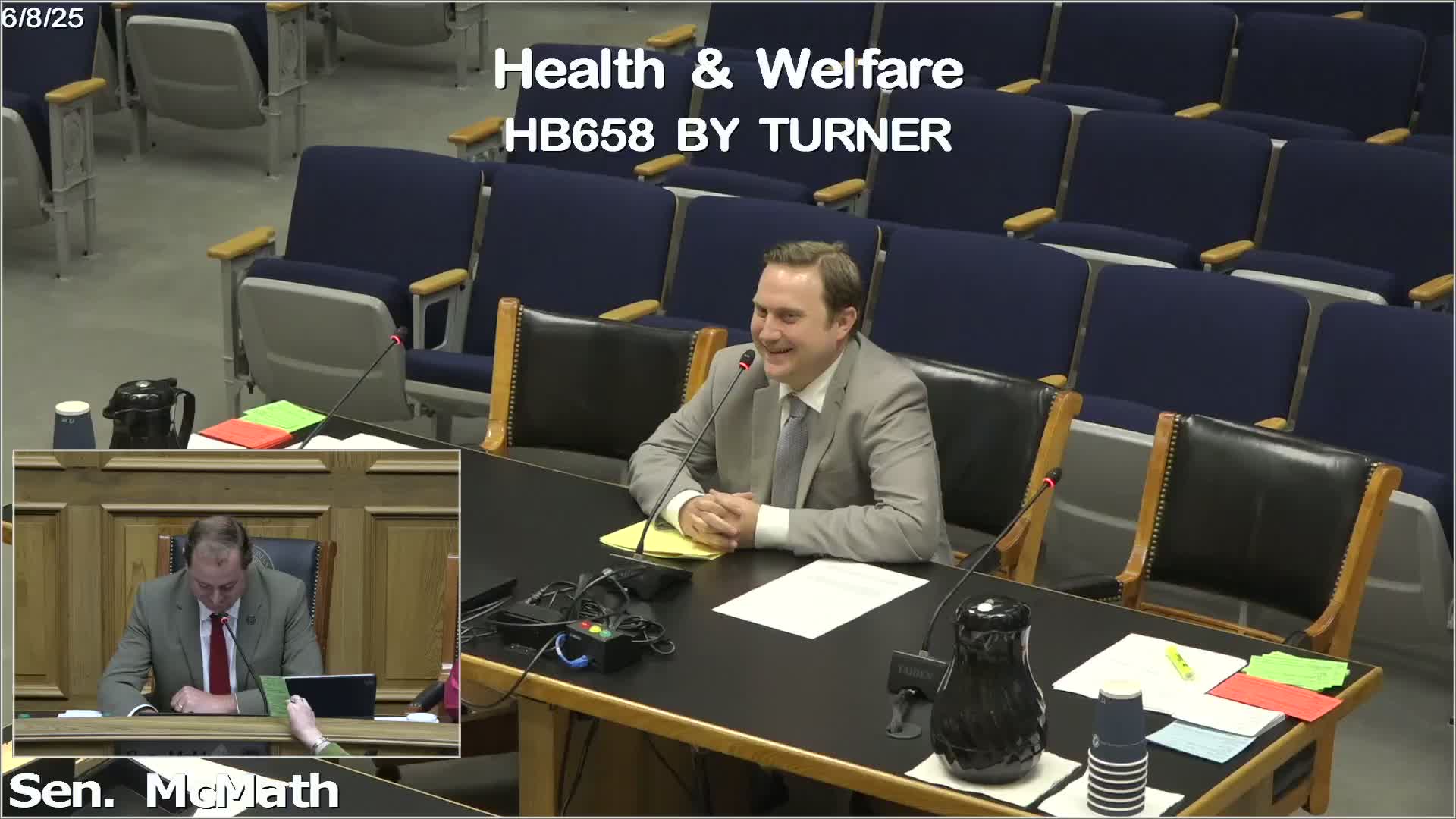
Committee reports addiction‑treatment trust‑fund bill; amendments to be added before floor
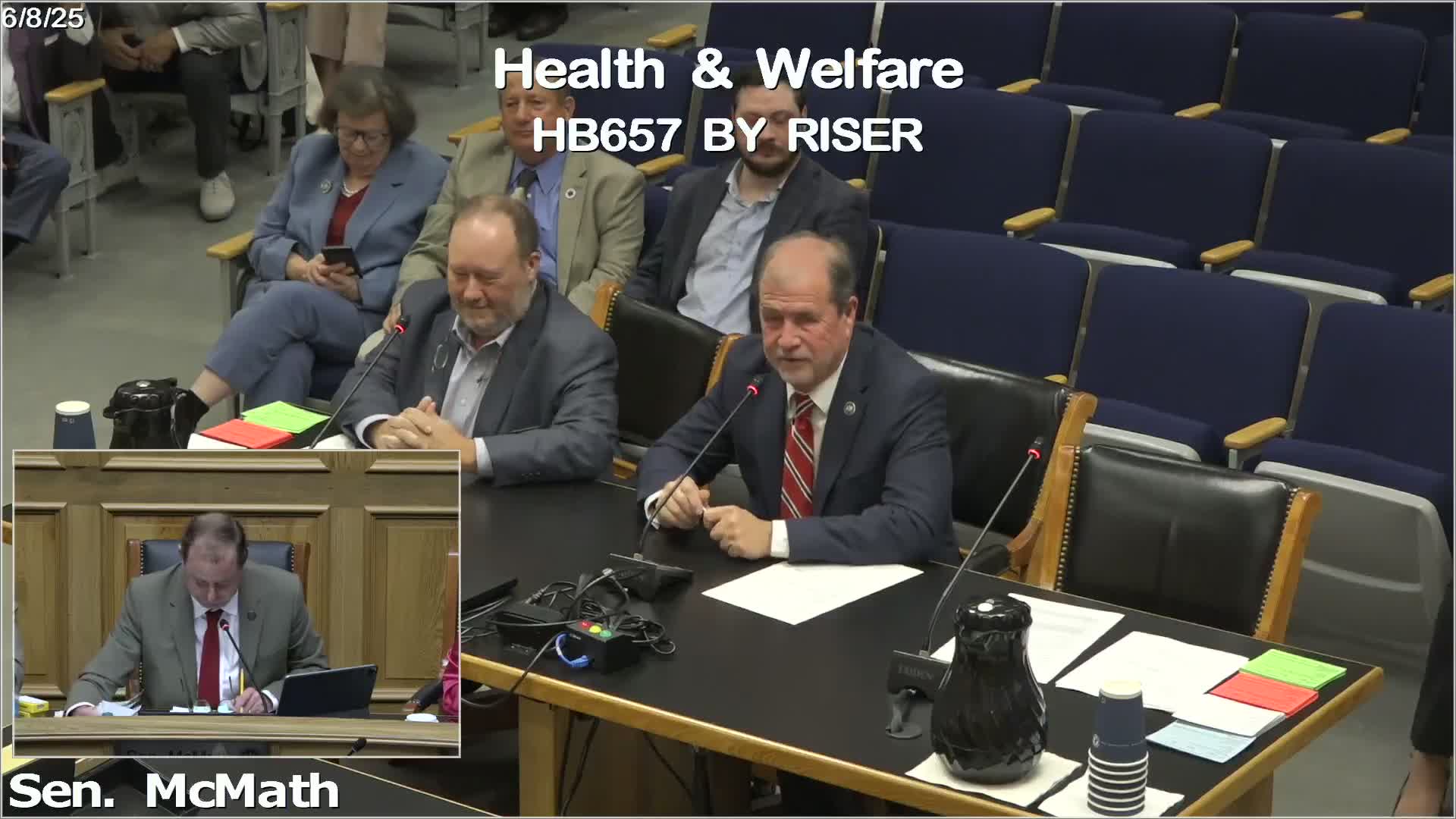
Committee reports medical‑marijuana provision moving pharmacy oversight to LDH with higher per‑location fee
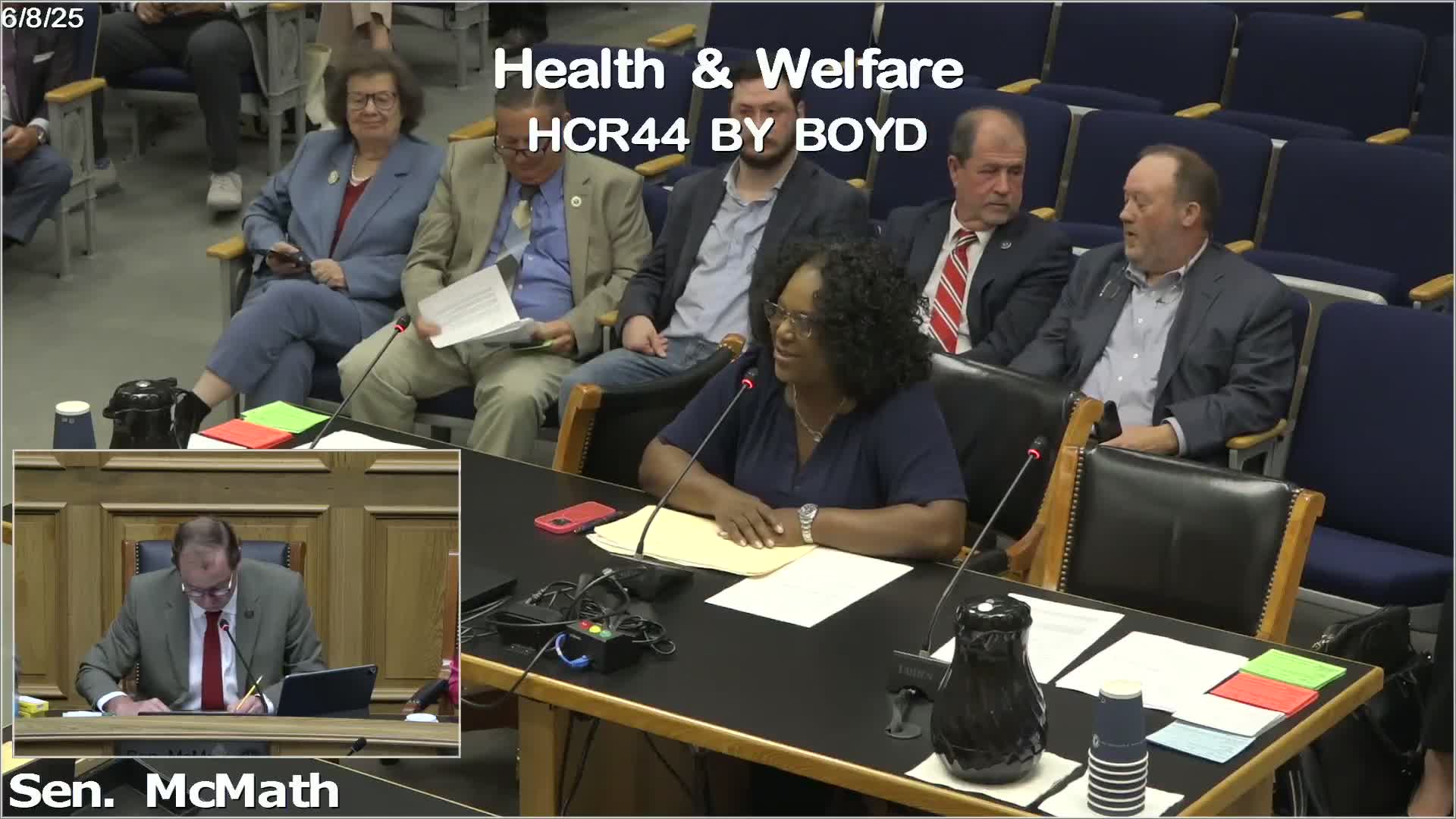
Senate committee backs HCR 44 urging earlier mammograms after rise in breast cancer among younger women
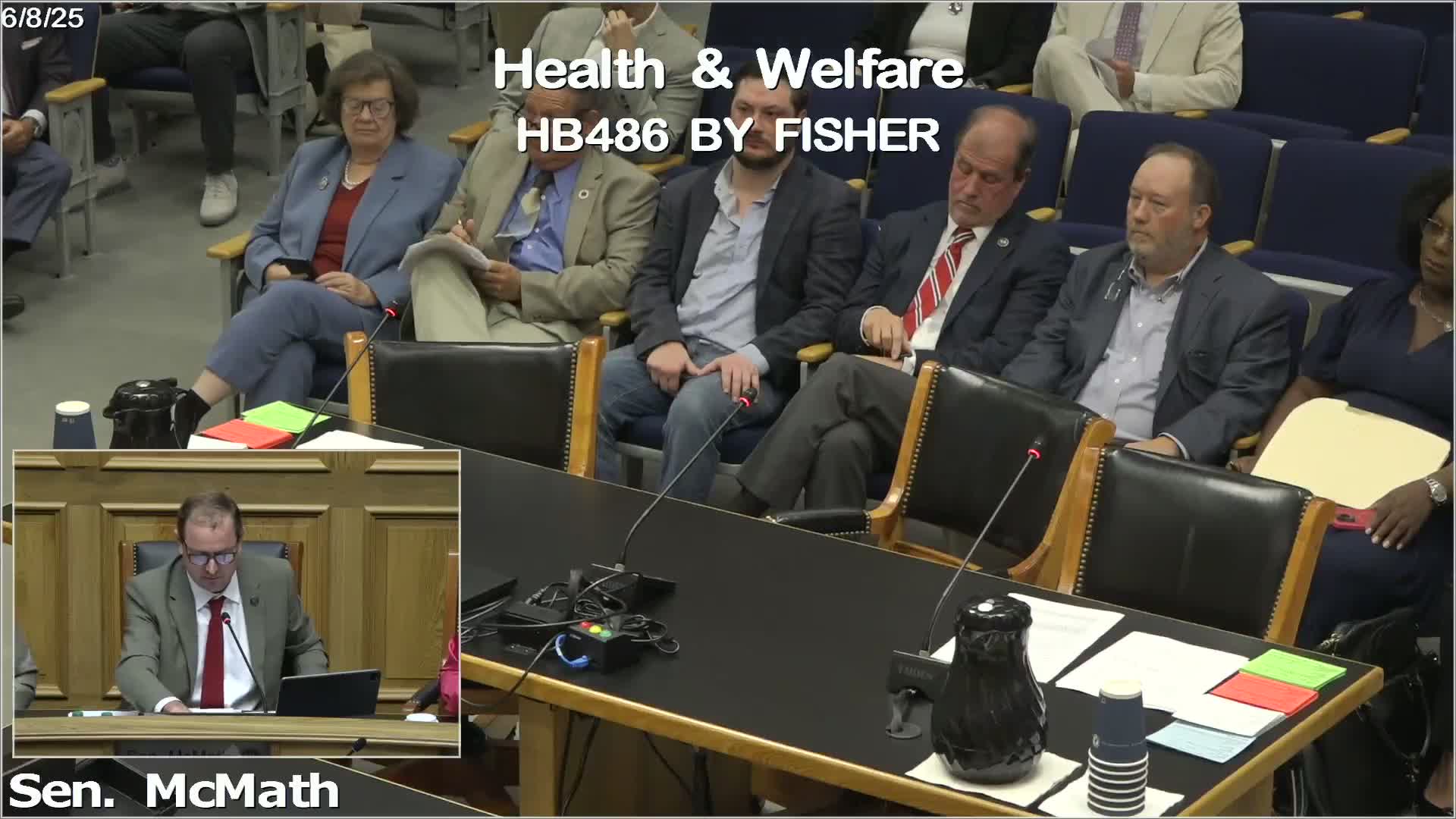
Committee advances bill letting parents request private mental‑health assessments for children
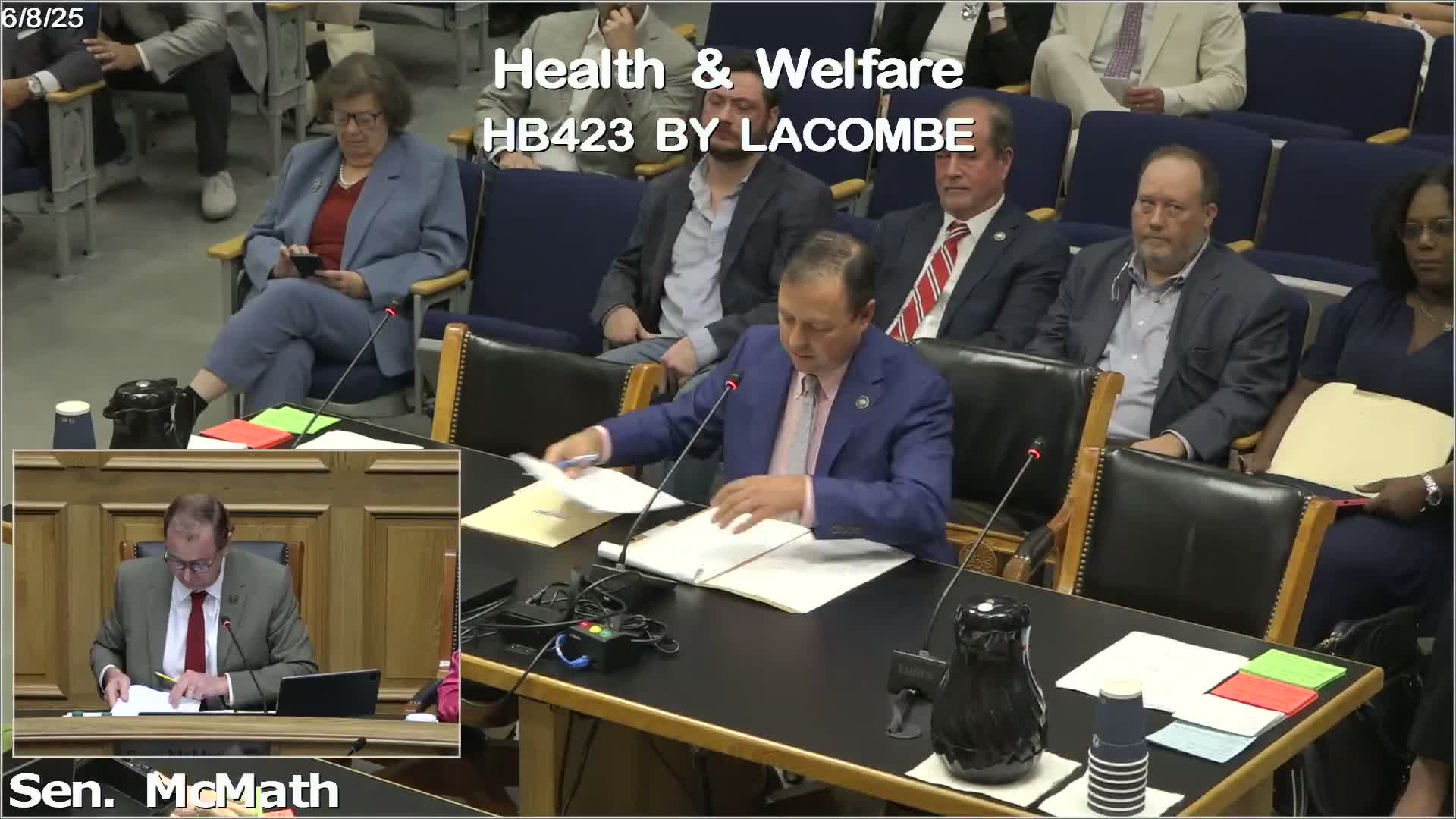
Senate committee approves 'truth‑in‑advertising' bill for licensed health professionals
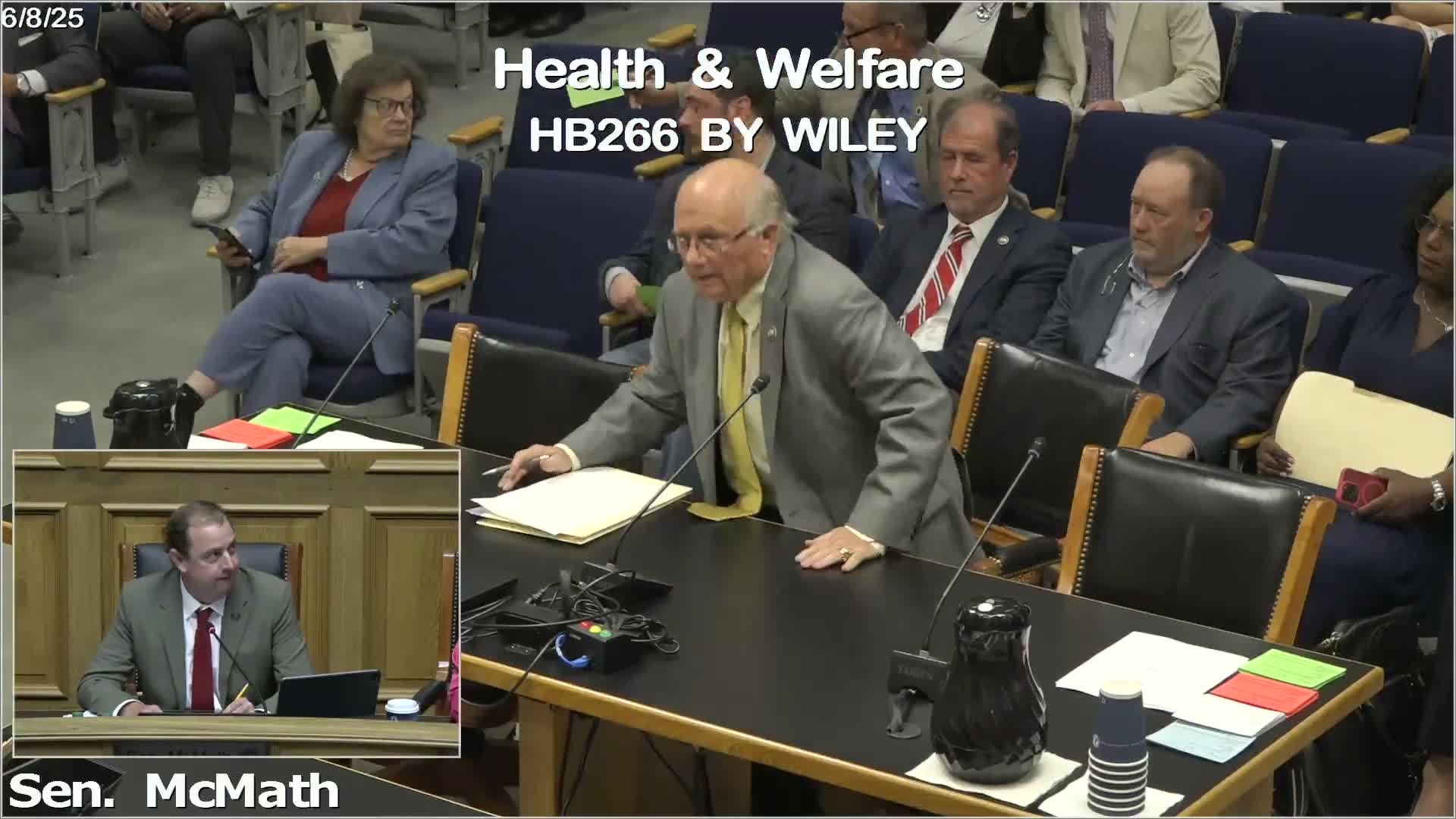
Committee backs modest increase to nursing‑home personal‑needs allowance
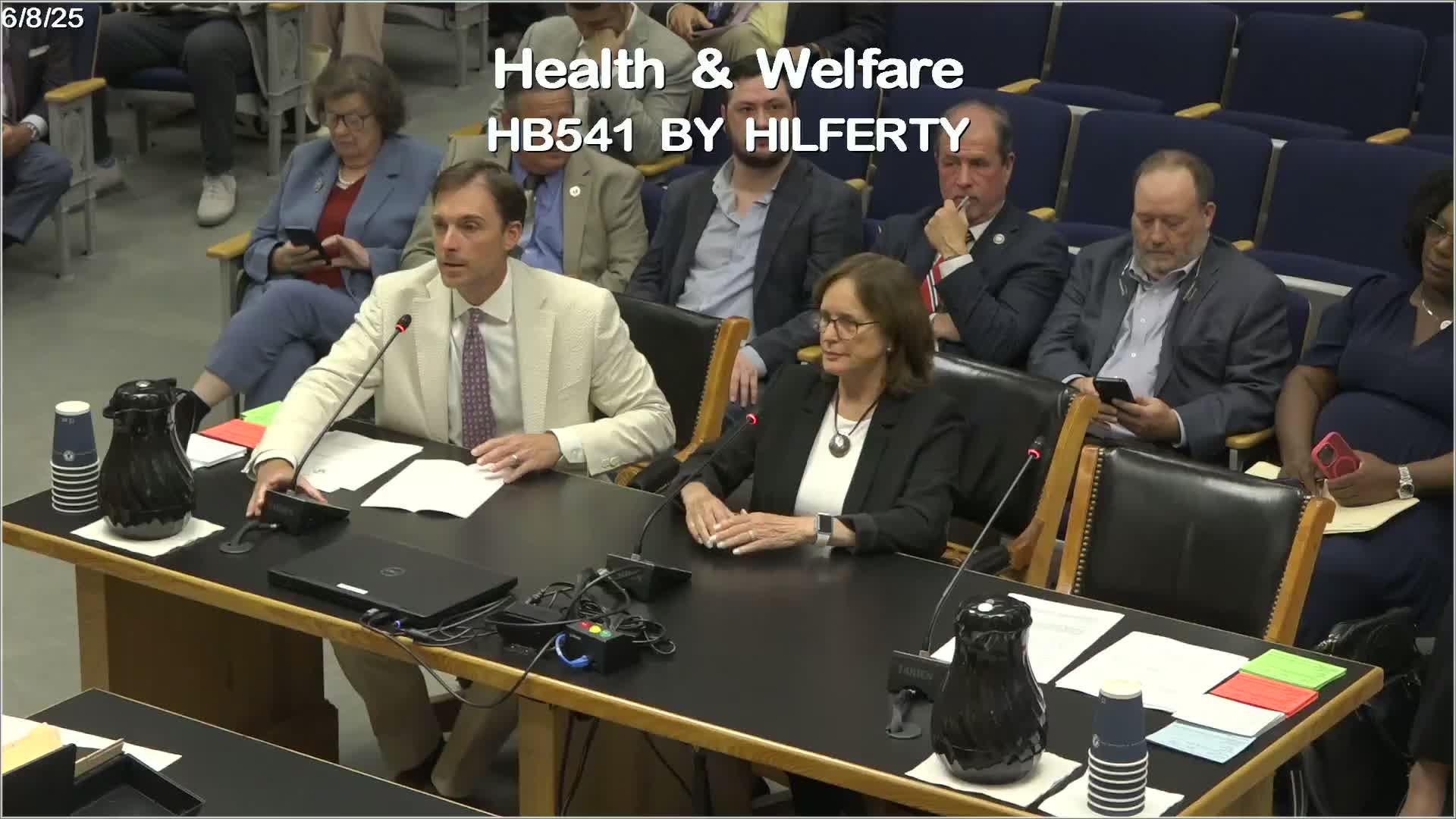
Committee OKs in‑home caregiver registry bill after LDH objections; amendment removes problematic phrase
